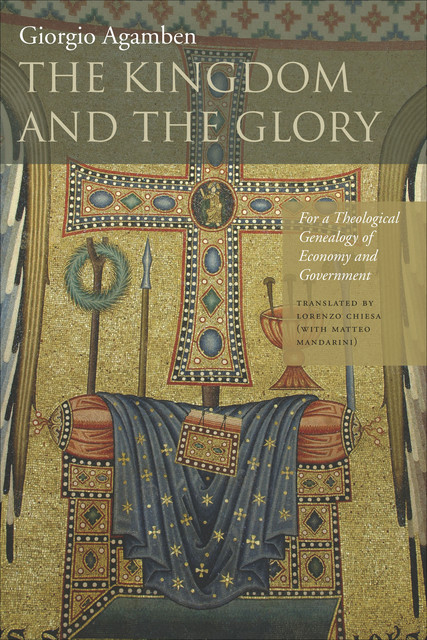The Kingdom and the Glory
- O knjizi
- Citati11
- Čitatelja4
- Slične knjige
482 tiskane stranice
- Objavljeno prvi puta
- 2011
- Godina izdanja
- 2011
- Izdavač
- Stanford University Press
- Prevoditelja
- Lorenzo Chiesa, Matteo Mandarini
Citati
- alopezrobinsonje citiraoprije 6 godinaHere, the debate is compromised by the presupposition that there are two different and incompatible meanings of the term oikonomia, the first referring to the incarnation and the revelation of God in time, and the second concerning the procession of the persons within the deity
- alopezrobinsonje citiraoprije 6 godinaThese “economic” relations (Aristotle emphasizes their diversity: ibid., 1259a–b) are linked by a paradigm that we could define as “administrative” [“gestionale”], and not epistemic: in other words, it is a matter of an activity that is not bound to a system of rules, and does not constitute a science in the proper sense (Aristotle writes that “the term ‘head of the family’ [despotēs] does not refer to a science [epistēmēn] but to a certain way of being”: ibid.,
- alopezrobinsonje citiraoprije 6 godinaGod is the presupposition of power [ . . . ] to act in the cosmos, but precisely for this reason he is not power
fb2epub
Povucite i ispustite datoteke
(ne više od 5 odjednom)


